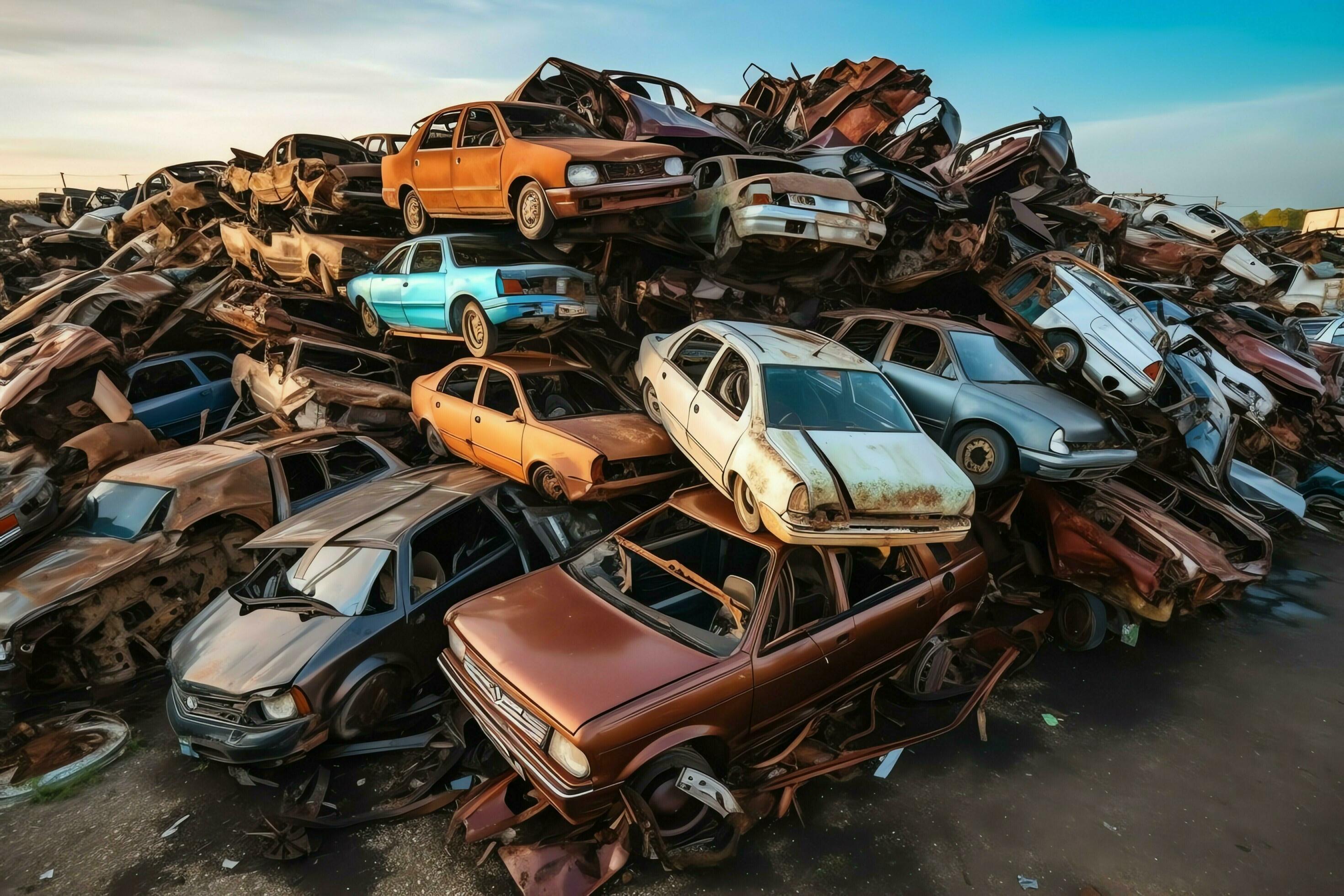The Economic and Ecological Benefits of Recycling Junk Cars
Reusing junk cars and trucks presents many economic and environmental advantages that extend well beyond waste decrease. By recovering up to 90% of vehicle parts, this technique dramatically minimizes garbage dump burden while maintaining crucial natural deposits. Moreover, it minimizes power use and greenhouse gas discharges connected to basic material extraction and manufacturing. The process additionally creates job opportunity across various industries, from dismantling to logistics, and offers customers with cost-efficient auto components. These advantages underscore the complex value of recycling junk autos, yet there are better aspects to consider when evaluating its complete influence.
Minimizing Land Fill Waste
Decreasing land fill waste via the recycling of junk automobiles plays a crucial duty in environmental conservation. When automobiles get to the end of their life process, reliable reusing processes can considerably lower the volume of waste that ends up in garbage dumps. Scrap autos, if not properly reused, add to the growing issue of landfill overcapacity, exacerbating ecological degradation and potentially contaminating dirt and groundwater with harmful materials such as oil, gas, and hefty steels.

Moreover, the recycling procedure mitigates the adverse results of auto waste on biodiversity. Garbage dumps are well-known for disrupting regional environments, and decreasing the influx of scrap cars helps preserve natural environments. Inevitably, reusing scrap automobiles is a strategic method that fosters lasting waste monitoring, straightening with more comprehensive ecological goals.
Conserving Natural Resources
In enhancement to mitigating garbage dump overcapacity, reusing junk cars plays a significant duty in saving natural deposits. The auto industry is heavily dependent on different steels, plastics, and various other products that call for substantial mining and handling. By reusing junk cars, we dramatically decrease the demand for basic materials, therefore curbing the ecological deterioration related to mining tasks. For circumstances, recycling steel from old vehicles decreases the necessity for iron ore removal, which consequently lowers power consumption and greenhouse gas emissions.
Moreover, the procedure of reusing automobile parts such as lead, aluminum, and copper is much less energy-intensive than creating these products from virgin sources. This energy financial savings translates straight into lowered fossil fuel intake and lower carbon footprints (junk car buyers). In addition, by reclaiming and repurposing products, we expand the lifecycle of non-renewable resources, guaranteeing they remain offered for future usage
Additionally, recycling auto fluids like antifreeze, transmission, and oil liquid avoids dangerous compounds from infecting dirt and water sources. With methodical reusing initiatives, these fluids can be purified and recycled, advertising a round economic climate and additional diminishing the strain on natural look at more info deposits. Thus, recycling junk cars and trucks supplies a complex strategy to preserving our earth's invaluable all-natural properties.
Developing Work Opportunities
The recycling of scrap cars and trucks not only profits the atmosphere however also promotes economic development by developing task opportunities. This expanding market offers a large range of work potential customers, Discover More varying from the preliminary collection and transport of old automobiles to the intricate procedures of dismantling, arranging, and repurposing the various parts.

The expansion of reusing plants better intensifies the task market, requiring duties such as designers, device operators, and top quality control experts to guarantee and manage the advanced machinery compliance with ecological regulations. Even management settings, such as sales, advertising, and client service, see a surge as the sector expands.
Reducing Manufacturing Prices
By including recycled products from junk automobiles, manufacturers can significantly decrease manufacturing costs. The power required to process recycled products is considerably much less than that required to produce new products from scratch.
Additionally, the reusing process assists simplify the supply chain by offering a consistent increase of materials that are readily available and usually cheaper than recently mined sources. These price efficiencies are particularly critical in a highly competitive market like vehicle production, where margins can be razor-thin. In addition, the recycling of scrap vehicles assists alleviate the unpredictable rates of basic materials, enabling manufacturers to better forecast and control their production budget plans.
Supplying Economical Automobile Components
When scrap cars are reused, the schedule of inexpensive automobile parts substantially boosts, benefiting both consumers and repair service shops. Recycled vehicle components are usually sold at a fraction of the price of repairs, giving an affordable option for car owners and mechanics. This cost can be vital for people who might not have the financial means to purchase new elements, enabling them to keep their lorries in functional and risk-free condition.
Service centers likewise acquire from this increased schedule read more of economical parts. By sourcing recycled parts, these companies can reduce their functional costs, which can be handed down to customers via lower service fee. This, in turn, can bring about higher consumer contentment and loyalty, as customers value the cost financial savings without jeopardizing on top quality.
Additionally, the quality of recycled parts has actually improved dramatically over the years, many thanks to advancements in reusing procedures and high quality control actions. Numerous recycled components undertake rigorous screening to guarantee they meet sector standards, supplying integrity equivalent to repairs - junk car buyers. By offering a high-grade and economically viable choice, the recycling of scrap autos plays a pivotal duty in sustaining both the vehicle fixing industry and the more comprehensive customer market
Conclusion
Recycling junk cars and trucks offers significant financial and ecological advantages by significantly decreasing garbage dump waste and saving natural deposits. This method reduces producing expenses by recovering as much as 90% of automobile elements, hence lowering energy usage and greenhouse gas exhausts. In addition, it generates work opportunities across numerous fields and supplies cost effective car parts, boosting the automobile repair work market. Overall, the recycling of junk automobiles supports both economic development and sustainability goals.
Recycling scrap autos presents numerous economic and environmental benefits that prolong well beyond waste decrease. Scrap autos, if not properly recycled, contribute to the growing problem of garbage dump overcapacity, worsening ecological destruction and possibly infecting dirt and groundwater with unsafe materials such as oil, gas, and hefty steels.
By reusing scrap autos, we significantly reduce the need for raw products, therefore suppressing the ecological destruction linked with mining tasks.When junk automobiles are reused, the accessibility of budget friendly vehicle components dramatically raises, profiting both consumers and repair stores.Reusing junk vehicles presents significant financial and environmental benefits by significantly reducing landfill waste and conserving all-natural sources.